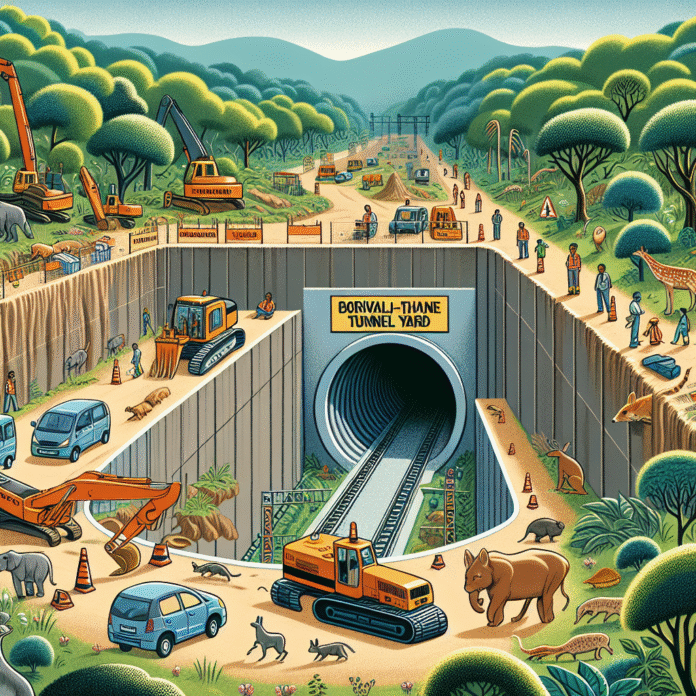Borivli Thane Tunnel Yard Plan Raises Environmental Concerns in SGNP Eco Zone
Borivali-Thane Tunnel Yard Project in SGNP Eco Zone Raises Environmental Alarm
The proposed Borivali-Thane tunnel yard project, which is part of the larger infrastructure development initiative in Mumbai, has ignited significant environmental concerns, particularly regarding its impact on the Sanjay Gandhi National Park (SGNP) Eco Zone. This project aims to create a critical link between two major suburban areas in the Mumbai Metropolitan Region, but the potential ecological repercussions are causing a stir among environmentalists and local communities.
Concerns Over Biodiversity
The SGNP is one of the last remaining green spaces in Mumbai, home to a diverse array of flora and fauna, including several endangered species. Environmental activists warn that the construction of the tunnel yard could disrupt the habitat of these species, leading to a decline in biodiversity. The potential fragmentation of wildlife corridors poses a significant threat, as animals would find it increasingly difficult to navigate their natural habitats.
Impact on Local Communities
Local communities living near the SGNP are also voicing their concerns about the proposed project. Many residents rely on the park for their livelihoods, whether through tourism, eco-friendly activities, or traditional practices. The construction could lead to displacement and loss of access to these vital resources. Furthermore, there are fears that increased traffic and pollution resulting from the project will adversely affect the quality of life for those living nearby.
Environmental Assessments and Regulatory Compliance
Critics of the project argue that adequate environmental assessments have not been conducted. They urge the authorities to prioritize comprehensive studies that evaluate the potential impacts on the ecosystem before moving forward. Regulatory compliance is essential to ensure that the project adheres to environmental laws and guidelines designed to protect sensitive areas such as the SGNP.
Public Opposition and Advocacy
Several environmental organizations and local activists have rallied against the tunnel yard plan, organizing protests and campaigns to raise awareness about the potential ecological damage. They emphasize the need for sustainable development practices that do not compromise the integrity of natural habitats. Public forums and community meetings are being held to educate residents about the implications of the project and to advocate for alternatives that prioritize environmental preservation.
Exploring Sustainable Alternatives
In light of the environmental concerns, there is a growing call for alternative solutions that could alleviate traffic congestion without harming the ecosystem. Options such as enhancing public transportation, expanding existing road networks, or promoting carpooling initiatives are being suggested as more sustainable approaches to urban infrastructure challenges.
Conclusion
As the debate surrounding the Borivali-Thane tunnel yard project continues, it is crucial for the stakeholders involved to consider the long-term implications for both the environment and local communities. Balancing infrastructure development with ecological preservation is vital for ensuring a sustainable future for Mumbai and its surrounding areas. Engaging in meaningful dialogue and prioritizing transparency in decision-making processes will be essential in addressing the concerns of all affected parties.


